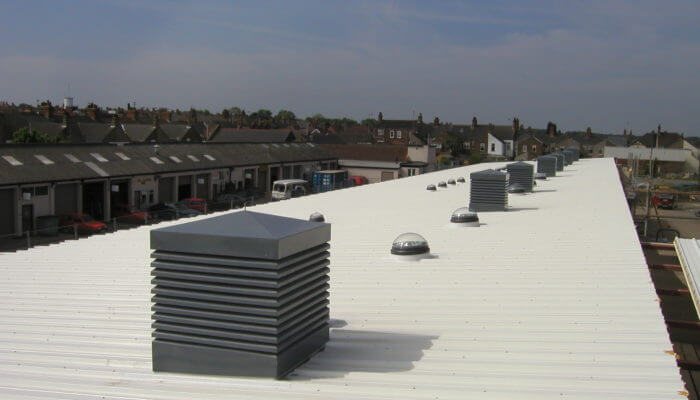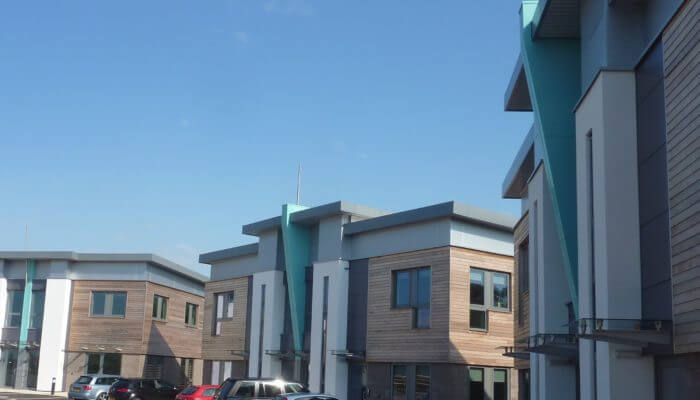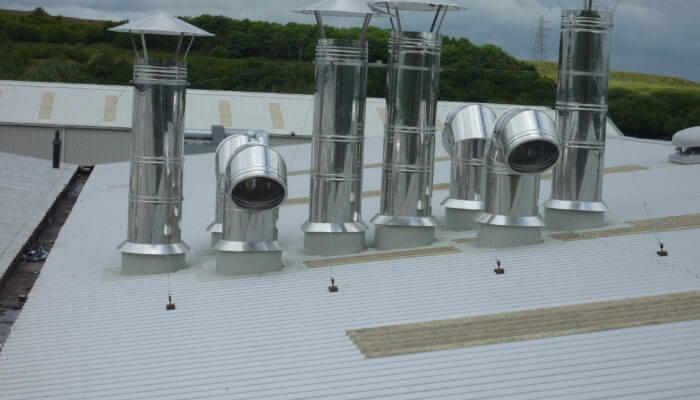The focus on efficient modular buildings is growing, highlighting the need for a review of weatherproofing methods and materials. The popularity of modular buildings is partially caused by the increasing pressure to deliver buildings faster and more cost-effectively. Fast-changing regulations that mandate significant improvements to the building performance are also a factor. The Department for Education (DfE) modular framework agreement announced at the beginning of 2020, with an investment of £3 billion, indicates a wider government shift toward modern methods of construction (MMC). This means that other traditional construction methods, such as weatherproofing, will need to be reviewed to ensure they are compatible with the modular approach and reflect the same values.
What are the benefits of modular construction and what are the challenges to wider uptake?
The need for more schools, hospitals, and other commercial buildings in the UK, whilst ensuring their impact on the environment and its resources is reduced, requires a shift within the construction industry to deliver an increased number of commercial spaces using fewer resources. Compliance with regulatory standards and the quality of these structures is also crucial to ensure performance, longevity, and an environment pleasant for building users. Modular building’s streamlined design, manufacture, and installation processes, using Modern Methods of Construction (MMC), makes them well placed to ensure the UK’s needs can be quickly and efficiently met.
MMC aims to streamline the most skill and labour-intensive stages of manufacture and installation and is key to the success of modular buildings within the commercial sector. Moving as many construction processes as possible into a controlled manufacturing environment has the potential to improve efficiency and protect resources, however, challenges with compliance and a lack of understanding of application has meant uptake was initially slow. Growing financial support from both UK Government and private investors, changes to legislation, and increasing needs for commercial structures is now opening doors to an increased use of modular buildings.
The impact of weatherproofing on the building performance
High performance weatherproofing is vital to the function of any building type and to maximise its lifecycle. Many traditional weatherproofing methods that worked well in conventional construction, however, do not necessarily fit modular assembly and may not align directly with the modular value of efficiency. Demands on labour and materials, lack of speed and flexibility and the resources and processes established weatherproofing use, are some of the issues causing this disconnect.
Improved planning and improvements to traditional weatherproofing application methods, or systems, may alleviate some of the issues. In the long run, improvements to existing methods are not sufficient. Weatherproofing systems will need to be evaluated in terms of the whole design, manufacture, and assembly of the building. A purpose designed weatherproofing solution can therefore provide the right platform to streamline the construction of modular buildings in the future.
Jones Weatherproofing have over 40-years of experience in the design, manufacture and installation of weatherproofing solutions on some of the most challenging and exciting projects in the UK and abroad. The experience and reputation as industry innovators has placed Jones Weatherproofing well to work with developers and contractors to improve the delivery of weatherproofing for modular buildings. This innovation started within the initial planning process. Incorporation of weatherproofing into the initial design of modular buildings allowed for better allocation of on and off-site application of weatherproofing. This meant the final stage of projects, usually the most resource intensive, is handled more time and cost effectively and the finished weatherproofing is of the highest quality.
To find out more about the benefits of modular construction and the considerations for weatherproofing of modular building construction, download our whitepaper ‘Streamlining weatherproofing in modular construction’. For advice on building penetrations and weatherproofing systems and how these can be designed for your next project, contact our team of technical experts.


